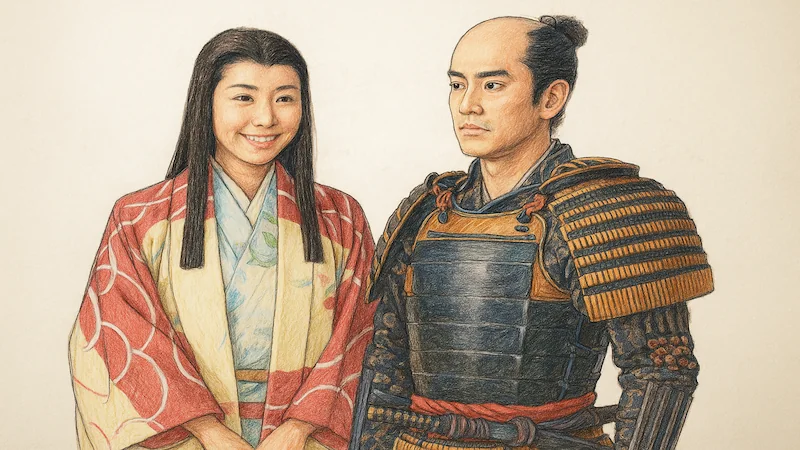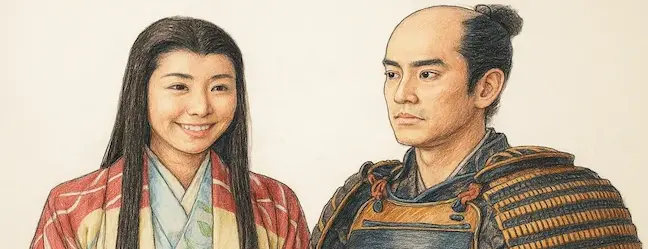
A Shift in Historical Perspective and Deeper Understanding
When I finished watching Toshiie and Matsu, I felt as if the landscape of Japan’s Warring States period had become far more vivid and tangible. Until then, my view of history had largely revolved around the “Three Great Unifiers” — Nobunaga, Hideyoshi, and Ieyasu — which naturally framed the past as a story of power and conquest. But by focusing on the couple Toshiie Maeda and Matsu, the drama revealed the human emotions, loyalty, and family bonds that existed behind the pursuit of power.
Above all, my perception of women in the Sengoku era changed dramatically. Rather than being passive figures who merely supported their husbands, women were leaders who fought on their own battlefields. Through Matsu’s involvement in peace negotiations and her steadfast protection of her family, the series illuminated themes of courage, diplomacy, and resilience that remain strikingly relevant even today.
Appreciation as a Drama and Recommended Highlights
The production excels in acting, music, and cinematography — each element crafted with care. Nanako Matsushima’s performance as Matsu radiates strength and grace, commanding the screen with quiet power. Toshiaki Karasawa’s portrayal of Toshiie, balancing bravery with tenderness, beautifully merges the historical figure with a deeply human character. While the pacing of the story is deliberately slow at times — even meandering in a few episodes — that same tempo allows viewers to fully experience the couple’s emotional and moral growth throughout the narrative.
I especially recommend this drama for those who wish to explore the Sengoku period from a perspective beyond the Three Great Unifiers, and for those who want to feel history through the intimate lens of family and marriage. Whether you’re a long-time history enthusiast or a newcomer to the era, Toshiie and Matsu offers a heartfelt, accessible entry point into Japan’s most dynamic age.
In Conclusion
Having completed Toshiie and Matsu, I now see the Maeda clan and the legacy of the Kaga Domain — the famed “Million Koku of Kaga” — not as mere footnotes in history, but as stories built upon generations of human experience.
The more I learn about the Sengoku period, the more I come to appreciate the peace and stability of our present lives. To understand the past is to contemplate the future — and this drama quietly but profoundly imparts that timeless lesson.



comment